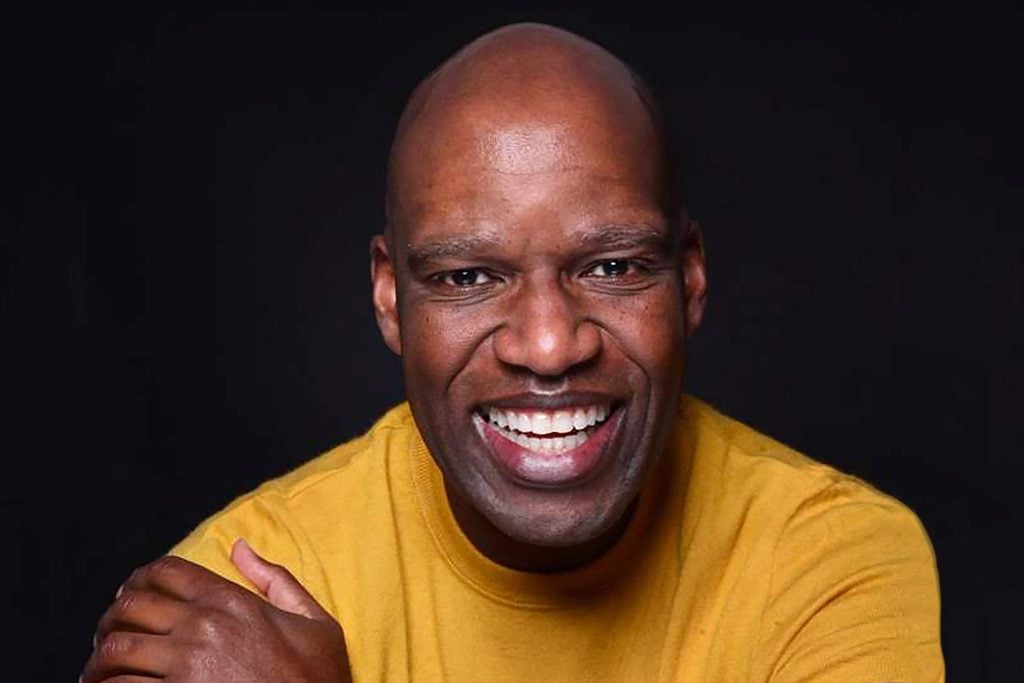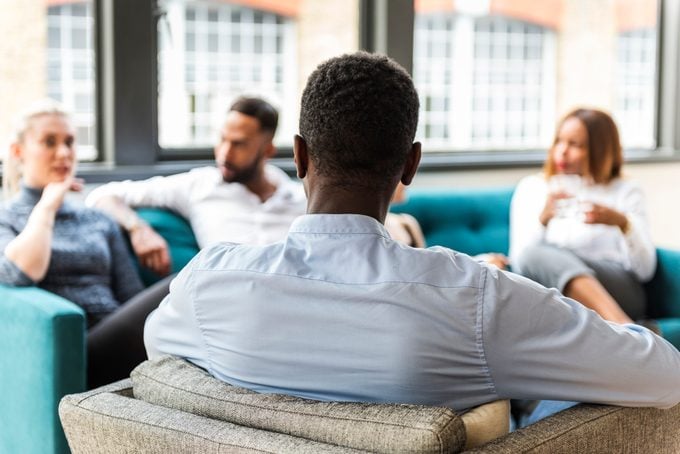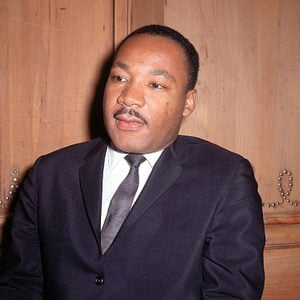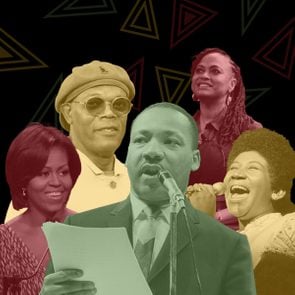14 Small Ways You Can Fight Racism Every Day
Updated: Apr. 12, 2024

The racial unrest currently escalating in the United States has been unlike anything the country has seen since the L.A. riots over the Rodney King verdict in 1992. Sadly, unnecessary police brutality against Blacks in America persists, and in the age of phone cameras and social media, disturbing images bombard us with increasing frequency. On May 25, a modern-day lynching was caught on camera, sparking a wave of possibly game-changing protests. For eight minutes and 46 seconds, Derek Chauvin, a white Minneapolis cop, leaned his knee into the neck of George Floyd, killing the handcuffed black man who had been arrested over a counterfeit $20 bill. Floyd’s pleas for life now have a permanent spot on the soundtrack of American history.
My white friends have been asking me what they can do to help conquer that savage beast that is racism once and for all. If a change is ever going to come, we need to be mindful of our everyday actions that hinder it. Here’s where I think we can begin.
Don’t be afraid of the word “racist”
Nobody wants to be called the dreaded “R-word.” It is to many white people what the N-word is to black people. However, racism doesn’t always wear a white robe and burn crosses. It’s lurking in everyday microaggressions, from offhand comments (for example, “your people” when talking to a Black person about Black people) to blanket assumptions made about minority groups based on the actions of just one. “It serves us perfectly to be exempt. It’s the root of virtually all-white defensiveness on this topic,” White Fragility author Robin DiAngelo said in a 2018 Elle interview. Until we acknowledge the racism we all harbor, we can’t begin to effectively address it, in others and in ourselves. In case you were wondering, this is why desegregation didn’t put an end to racism in America.
Call out loved ones when they say or do racist things
“They’re from a different generation” is no longer a valid excuse for a racist family member. The world has had plenty of time to catch up. When a relative cluelessly marches into a racial minefield, we should gently educate them without shaming them. Amnesty International offers excellent advice on what not to do: “If you embarrass somebody, call them uninformed or lecture them, then there’s a good chance they will feel as though they are on the back foot and your points may fall on deaf ears.” Sweeping racism under the proverbial rug or shrugging it off as the ramblings of a sweet, old, out-of-touch relative is tantamount to condoning it, which makes us an accessory to their bigotry.
Don’t make the trials and tribulations of minorities all about you
When someone tells you about their struggles as a minority, listen. Fight the urge to point out that some other group to which you belong has it just as bad, even if it does. There’s plenty of time to address everyone’s experience as part of a minority or oppressed group, but to turn someone else’s story into your own self-pity party diminishes it. If you aren’t Black, you can’t possibly understand what Black people live through. Lazy comparisons are pointless and insulting, so just listen and learn. To prepare for more constructive conversations about race, here are some helpful tips for being a better listener.
Apologize if you need to

Half-apologies are the worst. If you make a racially insensitive comment to a minority who calls you on it, it’s not enough to say, “I’m sorry you’re offended.” That’s just twisting the knife. Listen to why that person is offended and imagine walking in his or her shoes. If you get it and you’re truly sorry, then be sorry—period. Think about how you can do better, and then resolve to do better. That’s genuine contrition. Apologies can be healing for both parties, and it’s never too late to extend a sincere one.
Racist jokes aren’t funny, so don’t laugh
Human nature makes us want to fit in, but there are times when having integrity means being on the outside. Laughing at a racist joke only empowers the person who makes it to put it on repeat. A good rule to follow is not to engage in conversations in an all-white group that you would be uncomfortable having with a Black person present. If someone in your circle makes a racist joke and everybody laughs, speak up. Don’t let it just hang there. Racist humor is another way people perpetuate racism without even realizing it. Instead, read these 30 powerful quotes that speak volumes in the fight against racism.
Stop saying that you “don’t see color”
It’s a feel-good cliché that whites use to absolve themselves from the sins of their forefathers. It’s supposed to make blacks think they’re evolved whites, but it does just the opposite. Saying you don’t see color is like saying racism doesn’t exist. In fact, according to Forbes, it could be bad for diversity. Consider: If you’re a white boss who doesn’t see color, what’s to stop you from hiring whites only? “Colorblind” denial hinders progress. Black is not invisible. It’s the elephant in every room a Black person walks into. To say you don’t see it is to say you don’t see us. Here’s why you need to stop saying “I don’t see color.”
Get to know Black history
They don’t teach it in school. Not really. Slavery is generally discussed from the white point of view: the white legislators and white U.S. presidents who spent decades debating it and giving it a pass. Abraham Lincoln is portrayed as the great emancipator as if people like Sojourner Truth, Harriet Tubman, and Frederick Douglass were just sitting around on the sidelines and waiting for him to save them all. If you know Black history, then you’ll understand the great contributions Black people have made to American life and why so many of us are still so angry. Black history is indivisible from American history, and Black History Month should last all year.
Approach the legacy of Martin Luther King Jr. with caution and care
There is not a Black person in the United States who isn’t thoroughly schooled on King. We don’t need white people to quote him to us. We’ve spent our lifetimes committing his lessons to memory and gaining strength from them. Looting is certainly not the answer now, but when white people cite King’s policy of non-violence to shame those who aren’t peacefully protesting, it just reminds us of everything white America has violently taken from Black America, including King. We won’t be silenced, though. The tradition of King and James Baldwin and Maya Angelou continues in the words and ideas of younger generations of Black people who were and are inspired by them. We need to pay attention to these new and original voices—those are the ones that will guide us into the future. Now that we’ve addressed the complexity of Martin Luther King Jr.’s legacy, learn how his birthday became a national holiday.
Don’t think it’s OK to use the N-word because rappers use it
Some rappers think that dropping the N-word on records makes them street credible. That’s debatable. It still doesn’t give non-black people permission to use it. Not fair? Well, consider how unfair America has been to Black people for centuries. Unless you’d like to switch places, just leave the N-word to rappers. And while you’re at it, “thug” is the last word we should use to refer to Black people. It only perpetuates an unpleasant and untrue stereotype that is still crippling Black men in this country. Here are some other distasteful words and phrases you might want to consider dropping from your conversations.
If you don’t have to identify Black people by the color of their skin, don’t
It’s easier than one might think to become an Amy Cooper. She called the police because she said she felt threatened by “an African-American man” who was videotaping her after she refused his request to leash her dog in Central Park. The implication was that she felt threatened primarily because he was a Black man and she was a white woman. See how easy it is to weaponize race? Even when you think you’re giving a compliment—”She’s pretty…for a Black girl”—a racial qualifier can backfire. Think of it this way: If you wouldn’t use “white” to describe a white person in a certain situation, then drop “black” when talking about a Black person in the same situation.
Understand what white privilege is and own it

So many people think that if they are white and poor, they aren’t privileged. They’re completely missing the point. White privilege isn’t about economics. It’s about being able to exist in a world where the color of your skin isn’t the first thing people see about you. It’s about being able to exist in a world where the color of your skin isn’t something that holds you back. It’s about being able to exist in a world where you can storm a state capital armed and dangerous and not have a policeman kneel on your neck for more than eight minutes. “It is wrong to ask men and women of color to bear these burdens every single day, the same fights over and over,” New York Senator Kirsten Gillibrand said in January 2019 to the Rev. Al Sharpton’s National Action Network. At the very least, acknowledge the benefits of being white as you collect them. It’s the only way to begin to balance the power.
Stop saying “all lives matter” and dismissing affirmative action as unfair to white people
Of course all lives matter, but clearly Black people need to remind everyone that their lives matter because so many seem to forget. The odds are stacked against us collectively in ways they’re not collectively stacked against white people. New Yorker writer Louis Menand directly addressed opponents of affirmative action in a January 2020 essay: “Do they really think that white Americans, wherever they work or go to college, do not carry a lifelong advantage because of the color of their skin? Do they really believe that there should be no sacrifice to make or price to pay for the systematic damage done to the lives of millions of American citizens and the men and women who are their ancestors?” Rather than complaining about the ways in which society tries to boost Black people, why not celebrate us and acknowledge everything we’ve given this country, and how much more we could contribute if only we had equal opportunity. These 14 vintage photos of unity are what we all need to see right now.
Don’t let minorities do all the talking
A lot of white people who want to help exact change are wary of speaking out right now because they don’t want to say the wrong thing or be warned to stay in their lane. That’s understandable, but there’s no need to walk on eggshells. We want to hear from you. We need to hear from you. Black people have been demanding better treatment for centuries. Sometimes it feels like no one is listening. We’re tired. We need our white allies to grab the baton and speak to people in their circles who have tuned out our broken record. Find out what anti-racism means and what it means to be anti-racist.
Do something
To quote the rock musician Sting at the start of the Gulf War in 1990 now is not the time for sloganeering. “Woke” social media posts, hashtags, and platitudes about peace, love, and understanding trivialize what is a serious and complicated situation. If you want to be an ally, retweeting other people’s ideas and changing your Facebook profile picture to a black box is a good start, but it’s not enough—not anymore. “Black and brown people have been protesting for centuries,” Savala Trepczynski wrote in a June 2020 Time magazine story. “It’s white people who are responsible for what happens next.” Ultimately, talk is cheap. Action is priceless. Participate in a peaceful demonstration like Ariana Grande and Timothée Chalamet did. Donate your time. Reach out to black neighbors and work with them to make a difference in your own community. Patronize black businesses. True progress begins with each of us. Next, support the Black Lives Matter movement by donating to one of these charities and organizations that need your support right now.
For more on this important issue, see our guide to the Fight Against Racism.
Editor’s note: The opinions here belong to the author. To submit your own idea for an essay, email [email protected].



